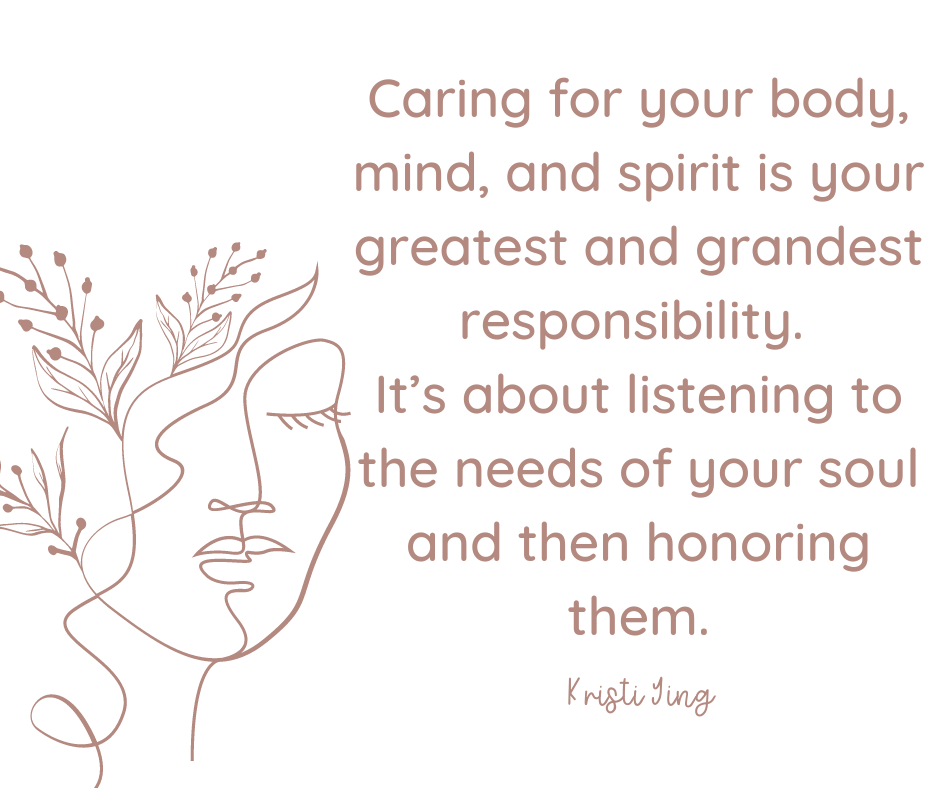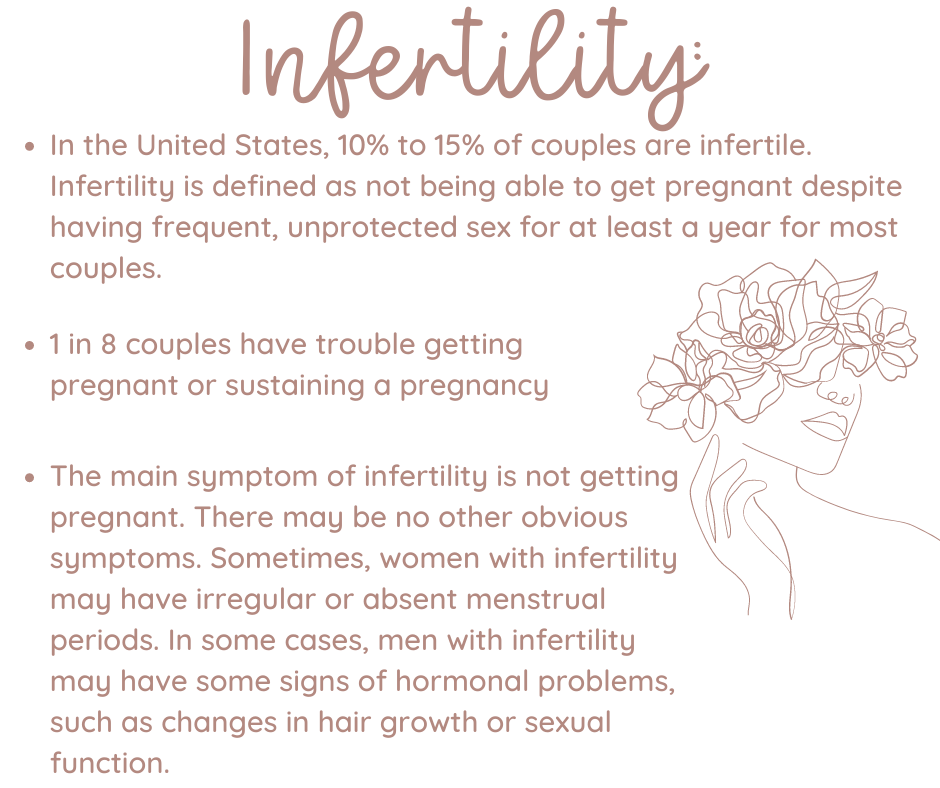
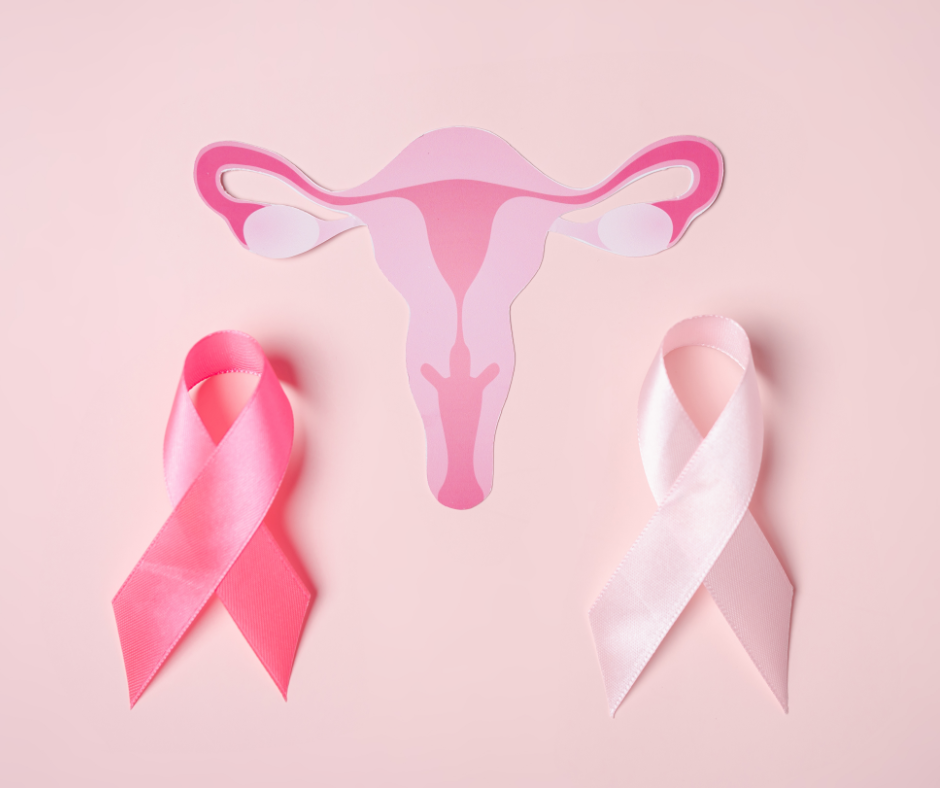
Infertility and Mental Health:

- A recent American Psychiatric Association (APA) Resource Document notes that the “psychological impact of being unable to conceive is a profound loss and significant life crisis.”
- Feelings such as depression, grief, anxiety, and guilt are often associated with women and their partner
- Women may also feel anger, shame, and a need to distance themselves socially

- Excessive daytime sleepiness
- Studies show that obstructive sleep apnea may be 30x more common in women with PCOS
- Sleep apnea exacerbates symptoms like tiredness, difficulty losing weight, hypertension, and insulin resistance
- Women with endometriosis often have poor sleep quality due to pain, anxiety, hot flashes, and migraines
- Lack of sleep contributes to feelings of mental and emotional fatigue

- Hormonal imbalance disrupts the growth and release of eggs from the ovaries
- Irregular periods (missed, infrequent, or prolonged)
- Fertility treatments are often necessary to help achieve pregnancy
- Imbalanced hormones can lead to feelings of depression, irritability, and anxiety
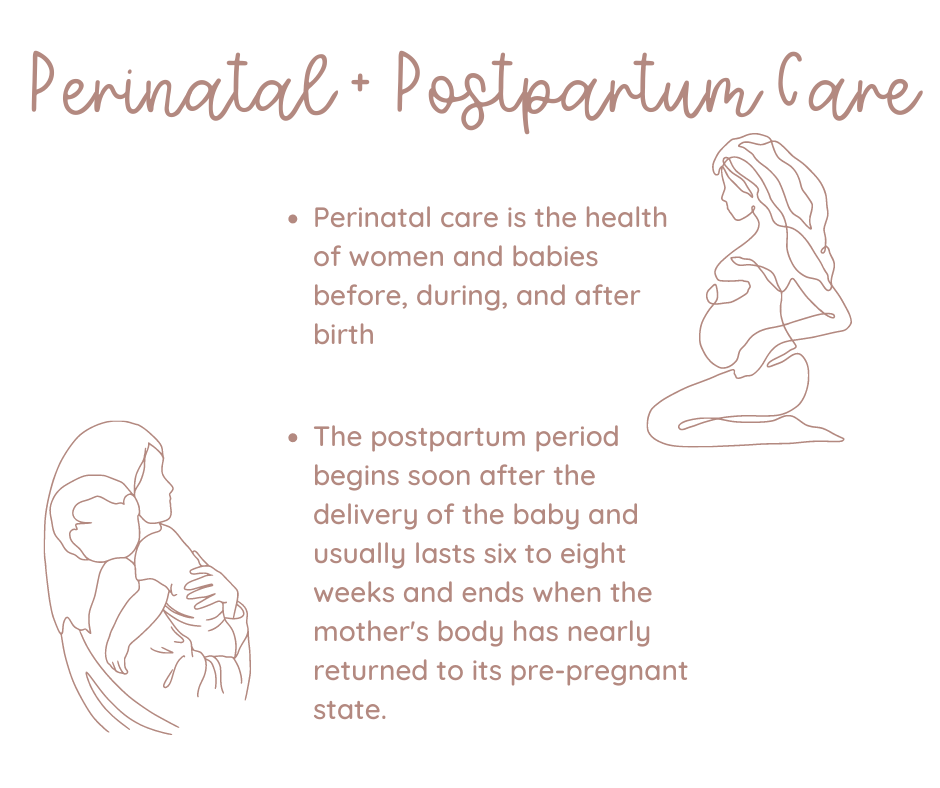
Perinatal + Postpartum Care and Mental Health:
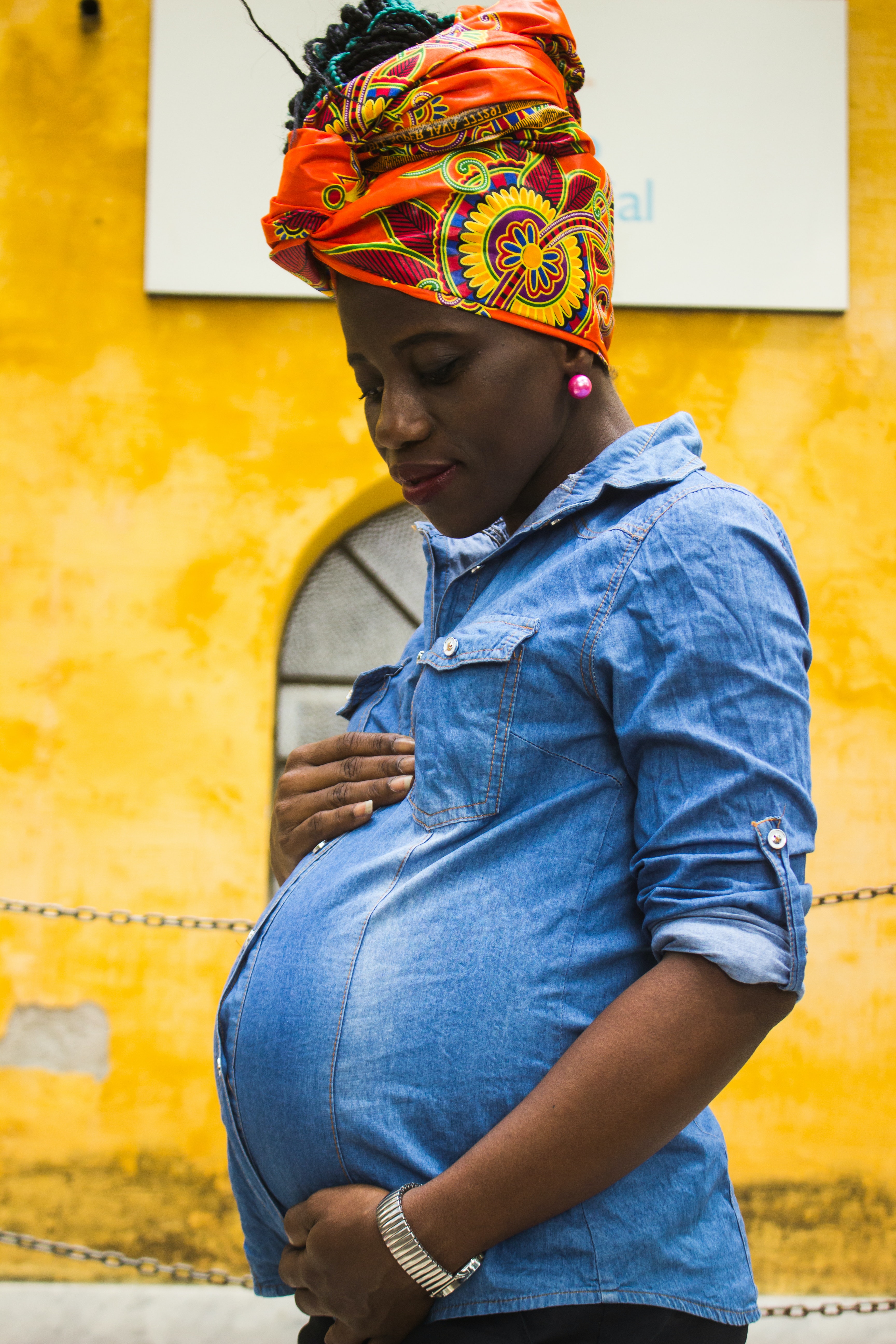
- Perinatal depression that occurs during and after pregnancy
- Symptoms can range from mild to more severe
- About 20% to 40% of women develop prenatal depression
- Many pregnancy symptoms are similar to perinatal depression
- As many as 1 in 7 moms (1 in 10 dads) experience symptoms of depression and anxiety during the postpartum period

- Symptoms of perinatal depression can include: insomnia, emotional changes, weight gain, frequent tearfulness, trouble sleeping, fatigue, changes in diet, loss of enjoyment of activities, increased anxiety, and difficulty feeling connected to baby
- Perinatal anxiety symptoms can include: experiencing panic attacks, excessive worry, and repeated thoughts of frightening things happening to the baby
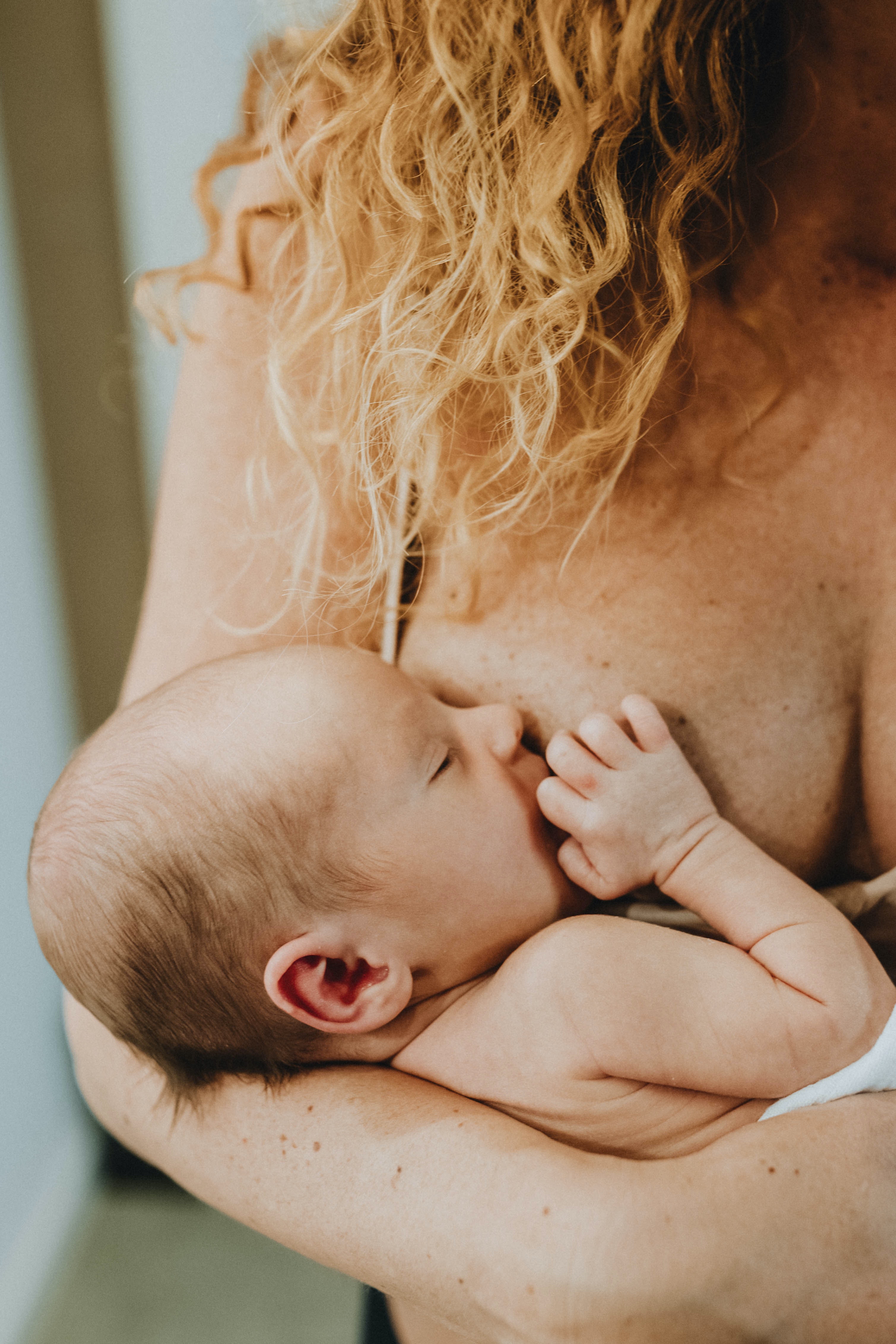
- As many as 80% of women who have given birth—report feeling sad, upset or overwhelmed, and that typically lasts for the first two to three weeks after having a new baby
- What to look for: a) Baby blues that don't get better, b) Experiencing feelings of sadness and guilt,
c) Difficulty making decisions,
d) Worrying about your ability to be a good mom, e) You think about harming yourself
